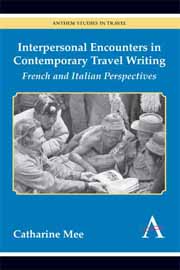Summary
Viaggiare non serve molto a capire […] ma serve a riattivare per un momento l'uso degli occhi, la lettura visiva del mondo.
(Travel doesn't help [us] much to understand […], but it helps to stimulate the use of [our] eyes for a time, [our] visual reading of the world)
Sightseeing and its accompanying activity photography have long been central to tourism. European elites of the early sixteenth century used to travel for conversation, to encounter and speak with learned men. But the eye soon gained precedence, initially as a tool for acquiring knowledge through fledgling scientific observation and later gazing at art and beauty, in pursuit of the picturesque. Despite Italo Calvino's assertion in the quotation above, the visual remains crucial to the way travellers and tourists both experience andunderstand the places they visit. John Urry uses Michel Foucault's analysis of the medical gaze to describe the ‘tourist gaze’: a number of socially constructed gazes, practiced by different social groups in different settings and historical periods. Urry and Carol Crawshaw have also highlighted how tourist expectations, experiences and memories are predetermined and structured by the visual.
Travel writers are addicted to the visual as much as tourists and the cult of the eye described by Adler and Urry structures both their approach to travel and the resulting texts. Like tourists, they seek famous sights and are obliged to navigate images that have become clichés through overdescription and over-representation in ubiquitous photographs.
- Type
- Chapter
- Information
- Interpersonal Encounters in Contemporary Travel WritingFrench and Italian Perspectives, pp. 83 - 106Publisher: Anthem PressPrint publication year: 2014



